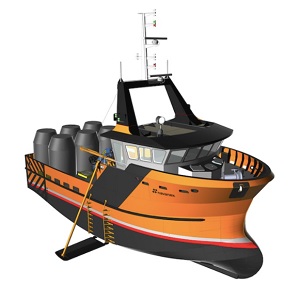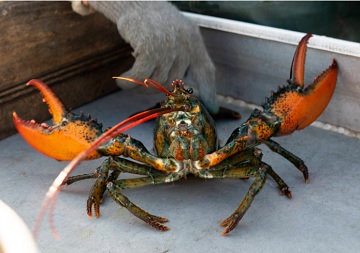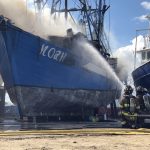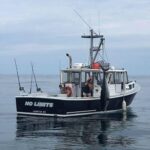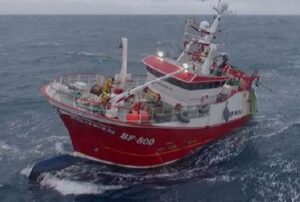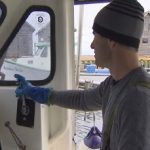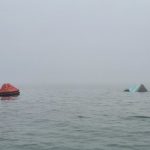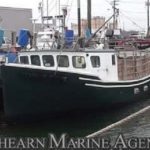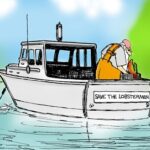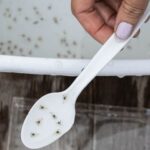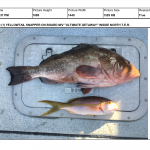Tag Archives: canada
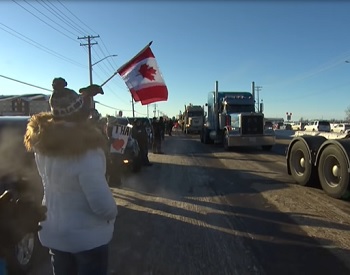
Trucker border vaccine mandates pinches Canada’s seafood industry
Canada’s seafood industry, already strained with supply chain issues, is warily watching for potential impacts of the new vaccine mandates for truckers, who transport billions of dollars’ worth of farmed salmon, crabs and lobsters across the border every year. But so far the disruptions at the land borders have been minimal, say industry sources. “It has been challenging for sure…we were (only) slightly impacted because almost our entire group has been vaccinated,” said Ryan Brush, general manager of Aquatrans, a specialized transporter of frozen and temperature sensitive food products. >click to read< 15:25
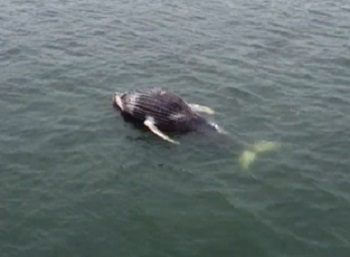
COVID-19 saves right whales by sinking cruise ships
Canada created the Shediac ship restricted zone in April 2020 just a couple weeks before Holland America’s Zaandam was scheduled to sail through that zone on a shipping lane used only seasonally by cruise ships as a shortcut to Quebec City. However, a COVID-19 no-sail order in March 2020 superseded that restriction. Consequently, there was not one Canadian ship right whale strike death in two years and only one Canadian crab entanglement death,,, Zero whales were killed by lobster gear. There has not been one death from lobster gear in the U.S. and only a couple in Canada in over 20 years but the Center for Biological Diversity, with no supporting data, claims the whales are going extinct based on lobster entanglements. >click to read< By Jim O’Connell 07:31
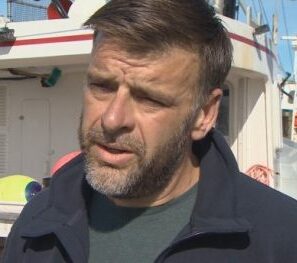
UFCA President Says Important Days Coming In Court
The group representing 2,000 commercial fishing stakeholders in Nova Scotia and New Brunswick have been granted intervener status in several Indigenous court cases. The latest came in December in a notice of application brought forward by the Sipekne’katik First Nation to the Supreme Court of Canada. The band’s application is against the federal government, challenging their regulation and enforcement of Indigenous fisheries. UFCA President Colin Sproul says these are the most vital court cases since the Marshall Decision. He says the UFCA’s goal is to have one set of rules for all fishers, within established seasons, and they are committed to a peaceful solution with all parties involved. >click to read< More UFCA >click< 14:26

Special interest hit piece unfairly targets Southeast fisheries
I was disappointed by what I consider to be a targeted attack on Southeast Alaska salmon fisheries. A report on interceptions of British Columbia salmon in Southeast Alaska salmon fisheries was publicly released on Tuesday by Canadian environmental groups. Many Pacific salmon stocks are highly migratory and often travel across state and international borders. Several stocks migrate into Alaska’s waters to take advantage of the rich marine environment in coastal Southeast Alaska and the Gulf of Alaska where they feed and grow before starting their journey back to their natal streams to spawn. Our quality habitat allows these salmon to thrive and return healthy to their natal streams to renew their life cycle. >click to read< by Doug Vincent-Lang 13:41

Federal Court rules on the side of fishermen on Class B licence policy
At the end of December, the Federal Court of Canada ruled a judicial review of the decision prohibiting the sale of a Class B licence, in a court case initiated by Newfoundland fisherman Donald Publicover, would be allowed. Upon hearing the news that the wheels of justice had acted in the fishermen’s favour, and that change to the policy applied to Class B licences may be afoot, James MacDonald, a lifelong fisherman who currently holds a Class B lobster licence, said, “That’s tremendous and I think we deserve that … we were told, ‘Oh, if the time comes that you want to get your Class A licence back, you can get them.’ But, if we can get that, we can either hand down or sell the ones we have, that’s better than letting them die with us.” >click to read< 07:20
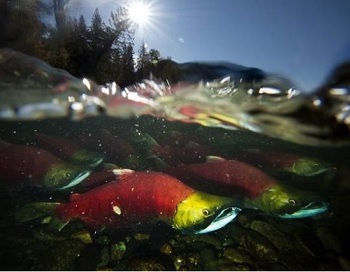
Alaskan fishing fleet catching huge proportion of B.C. salmon
As salmon runs in British Columbia hit record lows, commercial fisheries along the Alaska panhandle are catching a growing share of salmon bound for B.C. rivers, according to a new technical report. The report, which includes a detailed analysis on each B.C. salmon species caught in Southeast Alaskan interception fisheries, was commissioned by Watershed Watch Salmon Society and SkeenaWild Conservation Trust and comes as Canada and the United States begin their annual review of bilateral management under the Pacific Salmon Treaty. Many of B.C.’s largest salmon runs pass through Alaskan waters on their way home to spawn in Canadian rivers. >click to read< 11:50

Lawsuit filed to Protect Pacific Humpback from fishing gear, Can lawsuits save North Atlantic Right Whale?
The Center for Biological Diversity sued the National Marine Fisheries Service today for failing to protect endangered Pacific humpback whales from deadly entanglements in sablefish pot gear off the coasts of California, Oregon and Washington. According to Fisheries Service estimates, the sablefish fishery on average kills or seriously injures about two humpback whales every year. The fishery uses 2-mile-long strings of 30 to 50 pots. >click to read< Can Litigation Help Save the North Atlantic Right Whale From Extinction? – As conservation organizations and governments around the globe grapple with the devastating effects of climate change and overexploitation, the legal battle fought over the critically endangered North Atlantic right whale, one of the world’s most endangered large whale species, may provide insights into how litigation can help, or hinder, efforts to save species from extinction. >click to read< 13:41

NOAA/DFO Officials on Risk Reduction and Protections for North Atlantic Right Whales
In December, NOAA Fisheries held another productive biannual engagement with officials from the Department of Fisheries and Oceans Canada to discuss ongoing efforts by both countries to protect and recover North Atlantic right whales,,, While this was the last of the 2021 biannual meetings with Canada on this topic, it was my first as the Assistant Administrator for Fisheries. Both of our countries face the same challenge >click to read<,-Read about her background, >click here< 10:53
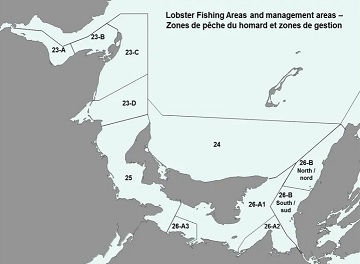
DFO says it is considering request from P.E.I. fishermen to change lobster setting dates
The federal government is considering allowing P.E.I. lobster fishermen to start the spring season earlier than normal. Krista Petersen, a spokeswoman with the Department of Fisheries and Oceans Gulf Region,,, “Before DFO makes any decisions on requests for season date changes, proposals need to be discussed with all groups who fish in a particular lobster fishing area,’’ Petersen said in an email. “Issues related to safety, weather, ice conditions and harbour dredging will be taken into consideration.’’ >click to read< 10:48
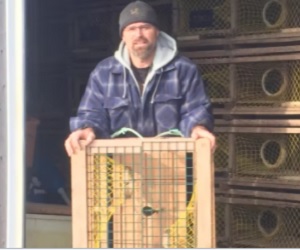
P.E.I. lobster fishermen vote to move up setting day in the spring
“We’re coming off back-to-back seasons here where the season was extended into July,’’ said Mike Dixon, co-chair of LFA26A lobster advisory committee, which represents close to 400 fishmen between Souris and Victoria. “As commercial fishermen, we recognize the resource becomes vulnerable at certain times of the year when the water temperature reaches a certain degree so that puts the lobster into their reproductive stages.’’ This vote was strictly meant to address the issue of not fishing for lobster when the animals are molting. >click to read< 07:58
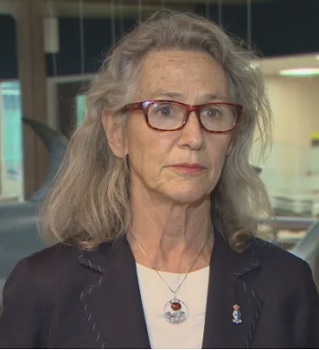
Fisheries Minister Discards Science in Pacific Herring in the Strait of Georgia Decision
“Shocked and devastated,” says the Herring Conservation and Research Society’s Rob Morley of Fisheries Minister Joyce Murray’s decision to reduce the harvest rate on Pacific herring in the Strait of Georgia to 10% from the long-standing, science-validated 20%. “Fisheries management decisions should be based on solid peer-reviewed science not the number of signatures on a petition.” To make matters worse, he added, “DFO will take 85% of the likely landed value in seine licence fees that were set in the 1970s. How are harvesters supposed to make a living?” >click to read< 11:38
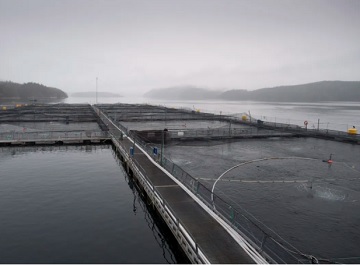
Fisheries Minister Joyce Murray sticking to plan to shut down open-net fish farms
Ms. Murray, a long-time Liberal MP known for her interest in environmental issues, was named Fisheries Minister in October after the former minister, Nova Scotia MP Bernadette Jordan, lost her seat in the October federal election. Ms. Murray’s appointment comes as some West Coast wild salmon species are teetering on the edge of extinction and the impacts of November storms on fish and habitat are just beginning to be tallied. Ms. Murray said her priorities as minister will include following through on strategies begun under Ms. Jordan’s tenure, including dealing with the controversial issue of fish farms. >click to read< 07:50
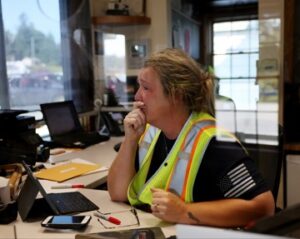
The ‘Lobster Trap’, Part II – Protests and Prayers
When she heard the news, in the middle of her shift selling tickets at the ferry terminal, Cathy Watt broke down in tears. The U.S. government had just ordered the unprecedented closure of a 1,000 square-mile swath of ocean off Maine’s coast to traditional lobster fishing for four months a year, starting in October. It was a crushing consequence of climate change: Warming oceans have hastened an endangered whale’s journey to the brink of extinction, and now Maine fishermen would pay the price. photos, video, part II of a series, >click to read< 09:49 ‘The Lobster Trap’ >click to read<
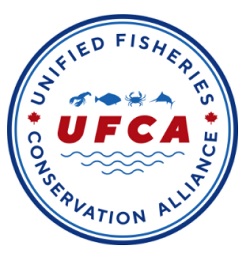
UFCA Granted Intervenor Status In Sipekne’katik Court Case
The Unified Fisheries Conservation Alliance has been granted intervenor status in another court case involving indigenous fisheries. They will be part of the Notice of Application brought by the Sipekne’katik First Nation against the Attorney General of Canada to challenge the regulation and enforcement of Indigenous fishing activities. UFCA President Colin Sproul discusses why it’s important for them to be involved. >click to read< 09:12
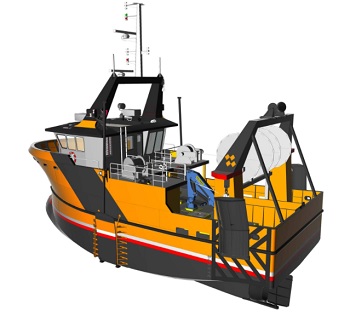
Fishing Boat Design: New Crab Boat/Groundfish Trawler from Gaspé Yard
The steel-hulled vessel will have a raised fo’c’sle design with an aluminum pilot house. When crab fishing, the clear, aft deck will be capable of carrying up to 150 collapsible, 100-pound crab pots. When rigged for trawling, a gantry will be mounted over the stern with two net drums. A pair to trawl winches can be mounted on a platform aft of the raised fo’c’sle. >click to read< 18:42
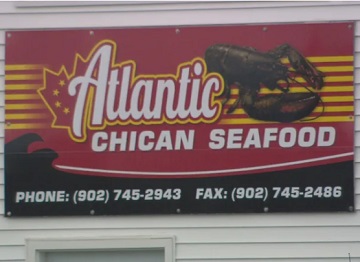
Atlantic ChiCan exported U.S. lobster to China claiming it came from Canada
A Chinese-owned lobster company in Nova Scotia has been fined $50,000 for illegally shipping American lobsters primarily to China and claiming it came from Canada. Atlantic ChiCan pleaded guilty Thursday in provincial court in Dartmouth, N.S., to two counts related to the mislabeling. Between May and October 2019, the big holding facility on Cape Sable Island in southwest Nova Scotia imported 63,000 pounds of live lobster from the United States and exported it as product of Canada,,, >click to read< 17:26

DFO Policy Puts Harvester Lives and Livelihoods at Risk
A new ‘weak rope’ gear policy being implemented in Newfoundland and Labrador will have negative implications for fish harvesters in this province, including risks to safety, an unknown cost burden, and significant potential for increased environmental waste. Weak rope measures are being implemented with the goal of preventing right whale entanglements. While these entanglements may be a concern for fisheries in Nova Scotia and New Brunswick, there has never been a right whale entanglement in the Newfoundland and Labrador fishery.,, “The death of one right whale could have a disastrous impact on seafood exports to the United States. Fish harvesters know this and will gladly take all reasonable steps to protect the species and their livelihoods but implementing this policy without any due diligence is entirely unreasonable,” >click to read< 10:55

Indian Brook man charged with allegedly threatening fishery officers in St. Marys Bay
In a news release, RCMP said the fisherman was following a coast guard vessel and came “dangerously close” to the bow. A collision was avoided because of maneuvers made by the captain of the coast guard boat. RCMP said the fisherman then threatened fishery officers who were aboard another boat working in the area. >click to read< 13:04
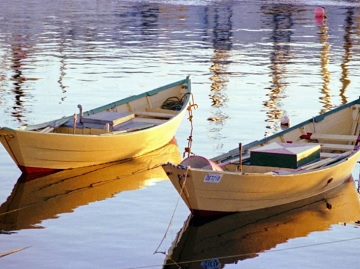
How Grand Bank made the ‘Grandy dory’ a Newfoundland icon
During the late 1800s and all of the 1900s, the small boat of choice along the south and southwest coasts of Newfoundland and Labrador was the dory.,, Simeon Lowell of Salisbury Point, Mass., is credited with inventing the dory in 1793. Over the ensuing decades these small, shallow draft, flat bottom boats measuring five to seven metres long, became so popular and were in such demand for fishing along the eastern seaboard that eventually “dory factories,” where they were mass-produced, were established. Around the same time schooners from Nova Scotia also took advantage of the lucrative fishing on our offshore banks followed by our own fishermen in 1891, led by Samuel Harris and at least 16 other schooner owners from Grand Bank. photos >click to read< 11:28
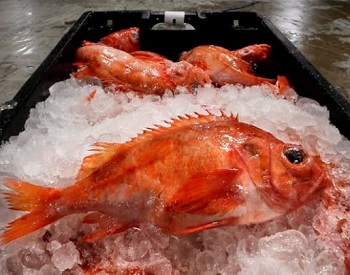
Redfish return sparks Atlantic race to cash in on reopening of commercial fishery
The centre of attention is a large section of the gulf known as Unit 1, stretching from the western coast of Newfoundland across to Quebec’s Gaspé Peninsula and down toward the northern tip of Cape Breton. A federal Fisheries Department moratorium on commercial fishing of redfish was imposed in the area in 1995 and has remained in place ever since. But from 2011 to 2013, research showed that three robust redfish cohorts had propelled growth in the overall stock. “There’s probably more redfish in the Gulf of St. Lawrence now than we’ve ever seen in our recorded history,” >click to read< 07:19
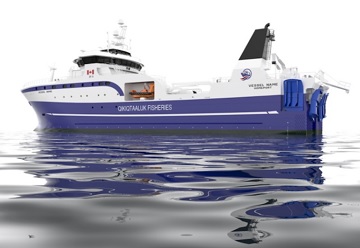
New Factory Trawlers for the Canadian North
Last year saw the delivery of Ocean Choice International’s Calvert and an order placed for a new Polar Code standard trawler for Clearwater Seafoods and Ocean Prawns in Denmark, currently under construction at Tersan. Now an agreement has been struck with Qikiqtaaluk Fisheries Corporation for the design of a new trawler to replace the company’s existing Saputi, which dates back to 1987. >click to read< 09:29

Remembrance Day: Memory of Labrador veteran killed in Afghanistan lives on
Friends and family remember Chad O’Quinn of Happy Valley-Goose Bay, N.L., as being larger than life, someone who enjoyed living on the edge and gave his all to everything he did. Now the family hopes to remind people of their son and the others who died in service. The corporal was serving in Afghanistan when he was killed by a roadside bomb on March 3, 2009. Twelve years later, his parents say his memory still lives on. “He was all up for excitement. He was all up for helping,” said Ken O’Quinn, Chad’s father. >click to read< 08:44
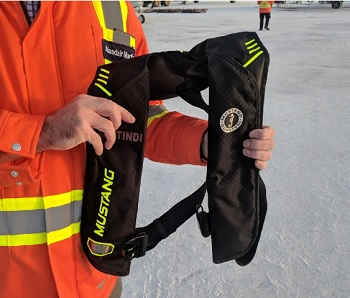
Canada: Fishing Industry’s high death rate ‘unacceptable’ and ‘preventable’
Though there is no obvious reason as to why fishing in Canada is so dangerous, or more dangerous than in other countries, there are certainly a number of factors at play. One of the reasons could simply be due to the large numbers of fish harvesters in Canada. Nova Scotia and Newfoundland have the greatest population of fish harvesters (according to 2009 numbers, Newfoundland and Labrador has around 17,000 fish harvesters and 6000 vessels, while Nova Scotia has around 13,000 fish harvesters and around 4,500 vessels). With so many people in the industry, a higher number of fatalities could be inevitable. >click to read< 10:26

Category B lobster licence holders still facing 50-year-old punishment
In 1976 DFO created the “moonlighter policy” which was aimed at removing people from the fishery as a conservation method. The result is that it has unfairly targeted fishers who held other jobs or professions almost 50 years ago. DFO deemed fishing was not their primary source of income and they became the “Class B” fishers.,, “It hangs over my head, that when I am gone, I leave nothing to my son. It all goes to the grave with me – boat, traps, licence. This is not fair,” said Clayton Smith of Salmon Beach, N.B. >click to read< 07:45
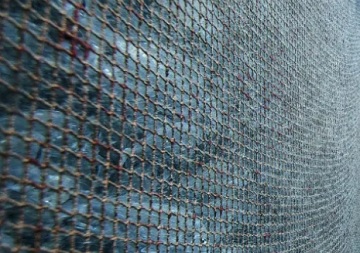
The U.S. is hungry for seafood, but more industrial aquaculture is not the answer
An often cited statistic to prove the need for industrial aquaculture is that as a country, we import as much as 90% of the seafood we consume. A lesser-known fact is that U.S. seafood exports have grown to record levels over the past decade. Rather than allowing destructive fish farming practices that can pollute our environment and displace commercial fishing in our markets, we should support our domestic fishing communities, so they can sell more of the higher-quality wild-caught seafood we produce here at home. Right now, megacorporation’s are pushing the U.S. Environmental Protection Agency and other federal agencies to gut existing regulations and fast-track permit approvals to build new floating factory fish farms and control even more of the seafood market. >click to read< 14:11
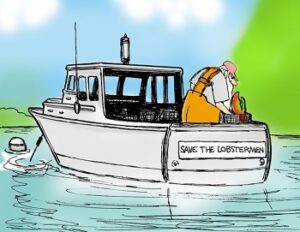
Opinion: Federal rules are sinking Maine’s lobster industry
As a lifelong Maine lobsterman, I understand the inherent dangers of my job. I keep watch on the forecast knowing that sudden weather changes can make the difference between a successful day at work and putting my crew’s life at risk. These days, however, the hazard posed by Mother Nature does not compare with the perfect storm of regulations coming out of Washington that threaten my job, our way of life and may eventually sink a fishery that has supported communities and generations of families here in Maine. By Kristan Porter >click to read< 15:18






